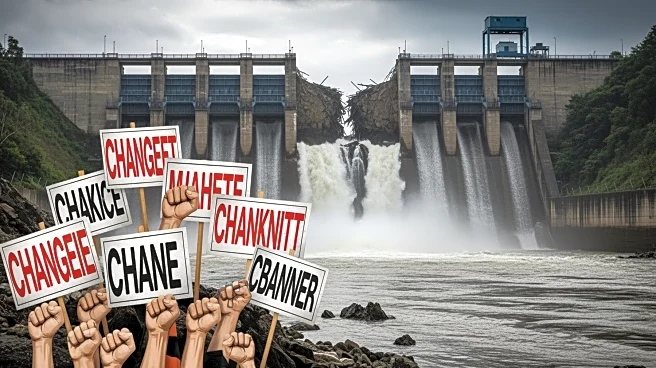What's Happening?
Tens of thousands of people protested in Valencia, Spain, demanding the resignation of regional leader Carlos Mazon. The demonstration marked the one-year anniversary of flash floods that claimed 229 lives,
the worst flood-related disaster in Europe since 1967. Protesters criticized Mazon's handling of the disaster, particularly the delayed issuance of alerts despite warnings from the national weather agency. Banners and chants accused Mazon of negligence, with calls for his imprisonment. The protest reflects ongoing dissatisfaction with the regional government's response to the floods.
Why It's Important?
The protests highlight public discontent with regional governance and disaster management in Spain. The delayed response to the floods has raised questions about the effectiveness of decentralized systems in handling emergencies. The event underscores the need for improved communication and preparedness in disaster-prone areas. The political pressure on Mazon could lead to changes in leadership or policy reforms aimed at enhancing disaster response capabilities.
What's Next?
A judicial investigation into the emergency response is underway, which could result in legal consequences for those involved. The ongoing protests may continue to exert pressure on Mazon and the regional government, potentially leading to political shifts or resignations. Future flood defense strategies are likely to be scrutinized and revised to prevent similar tragedies.
Beyond the Headlines
The disaster and subsequent protests raise ethical questions about accountability and governance in crisis situations. The event may influence broader discussions on climate change adaptation and infrastructure resilience in flood-prone regions. The societal impact of the floods and protests could lead to increased civic engagement and demands for transparency in government actions.










